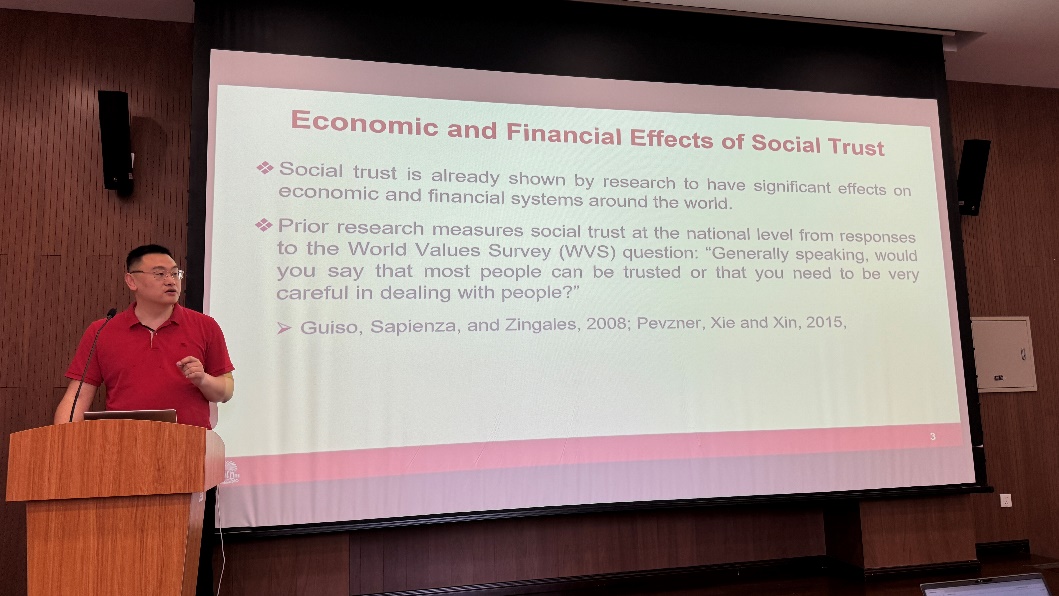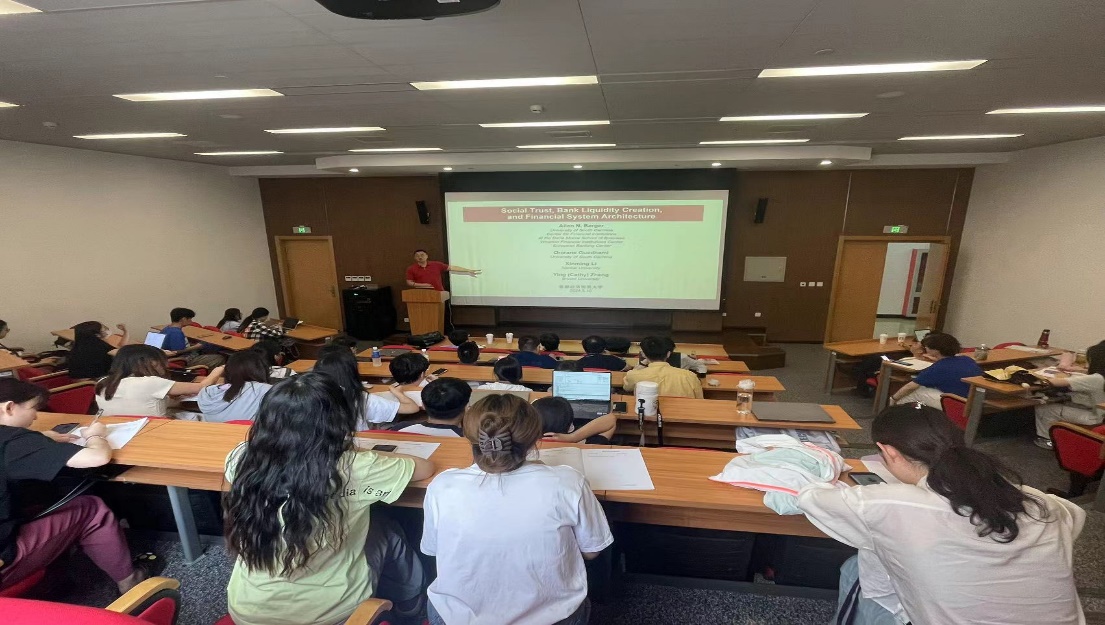5月10日下午,由首都经济贸易大学金融学院主办的首都金融论坛第192期、论文研讨班第283期如期举行,师生通过线下形式参与本次研讨。本期论文研讨邀请到了南开大学金融学院教授,李欣明,他就“Social Trust, Bank Liquidity Creation, and Financial System Architecture”这一会议主题,与学院师生进行了交流讨论。会议由赵大萍副院长主持,金融学院何枫、沙叶舟、马思超、邴涛、杨李正博、任幸子、刘贤达、李佳龙等教师及多名硕博研究生参加。

会议内容探讨了社会信任对银行流动性创造的影响。具体内容为:Social trust – belief that potential trading partners will act honestly – has powerful economic and financial impacts, but effects for banks are controversial. Banks expertly screen/monitor borrowers to mitigate dishonest adverse selection/moral hazard behavior and protect depositors. Existing research is mixed whether banks behave honestly. We formulate and test questions of whether more social trust increases versus decreases bank output and raises or lowers bank prominence in financial system architectures. We employ large international datasets, measure bank output using the comprehensive liquidity creation concept, and gauge financial system architecture prominence with market liquidity provision. We find social trust reduces bank liquidity creation and lowers bank prominence, especially for poorer nations/bank-based systems where liquidity is likely most needed, and offer future directions to address such issues.

在交流环节,与会师生与李欣明教授对Social Trust, Bank Liquidity Creation, and Financial System Architecture这篇文章进行了深入探讨。何枫老师提出“工具变量是否可以用语言?”“山川河流地形是否能用来作为社会信任的工具变量?”还有老师提出“社会信任可能长期不变,一个长期的东西不太可能影响短期的东西”沙叶舟也对固定效应是否应该控制在个体层面还是国家层面提出了疑问。李欣明对这些问题进行了详细的解答。本期研讨班在热烈的讨论中圆满结束,与会师生各叙己见,会议氛围轻松热烈,为师生们未来的研究方向与研究方法提供了新的思路。
主讲人简介:
李欣明,南开大学金融学院教授,博士生导师,学术发展中心主任,百名青年学科带头人,美国联邦储备委员会和银行监管者协会青年学者,曾任世界银行咨询专家, 天津市河东区金融局副局长(挂职)。担任SSCI一区期刊Research in International Business and Finance银行区主编,美国东部金融学会会刊、ABS 3星期刊 The Financial Review 副主编。研究领域包括: 银行、公司金融、金融稳定、数字金融、ESG等。研究成果发表于Journal of International Business Studies,Journal of Financial and Quantitative Analysis,Journal of Financial Intermediation,Journal of Business Ethics,Journal of Corporate Finance,Journal of Banking and Finance等国际权威期刊。主持及参与国家社科基金重大项目,国家自然科学基金项目和教育部人文社会科学基金项目等 6 项。论文获得第十三届亚太金融市场国际会议最佳论文奖。JFQA、JFI、JBF、JFS最高被引用论文。

